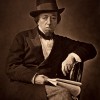
Dianne F. Sadoff, “The Silver Fork Novel, 1824-41”
Between 1824, when Theodore Hook’s sketches, Sayings and Doings, were published as a volume, and 1841, when Catherine Gore’s Cecil, a Peer, appeared, the silver fork novel was among the most popular fictional modes. This sub-genre rewrote Jane Austen’s narratives for a more exclusive class and a new, reform-minded middling reader with class aspirations, thus preparing for the mid-century emergence of William Makepeace Thackeray’s and Charles Dickens’s novels.
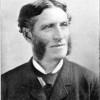
Annmarie Drury, “‘To a Gipsy Child by the Sea-Shore’ (1849) and Matthew Arnold’s Poetic Questions”
In 1843 or 1844, Matthew Arnold saw a mother and child on a pier in Douglas, Isle of Man. This sighting connects to “To a Gipsy Child by the Sea-Shore,” which appeared in 1849 in his first poetic collection, The Strayed Reveller, and Other Poems, where it is identified in the volume’s contents page under a slightly different title, “Stanzas on a Gipsy Child by the Sea-Shore, Douglas, Isle of Man.” This essay explores the poem from the perspective of lyric craft, beginning with its rhetorical strangeness and focusing on the young Arnold’s poetic experimentation. “Gipsy Child” is a lyric assay. It acknowledges Romantic antecedents while definitively diverging from them, particularly in how it deploys questions to transform the rhetorical identity of its speaker. Ultimately, the young Arnold asserts poetic authority through questioning – a gesture we can relate to the high value that Arnold later places on dialogue in other aspects of his work, as cultural critic and as inspector of schools. In terms of experience and representation, the rhetorical transformation in “Gipsy Child” raises questions about the relationship between real-world events and poetic fashioning.
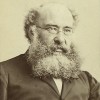
Deborah Denenholz Morse, “The Way He Thought Then: Modernity and the Retreat of the Public Liberal in Anthony Trollope’s The Way We Live Now, 1873”
Anthony Trollope’s The Way We Live Now represents the culture of pervasive dishonesty and greed he saw everywhere around him in High Victorian England. The novel has come to be understood as a text about the unfamiliar problems of modernity, of the title’s “now.” In 1873, Trollope responds to the cultural moment by briefly retreating from his liberal reformist stance to a belief only in private commitment between individuals. The novel marks a caesura in Trollope’s faith that the public domain could reform.
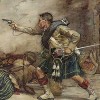
Zarena Aslami, “The Second Anglo-Afghan War, or The Return of the Uninvited”
The Second Anglo-Afghan War grew out of longstanding tensions between Russia and Britain over Britain’s prized colonial possession of India. In my account of the Second Anglo-Afghan War, I would like to emphasize two main themes. First, Afghanistan occupied an anomalous position in the British Empire. The British did not seek to colonize it or conquer it. Rather, they sought to install a sovereign who would be sympathetic to British interests, allow the British to control Afghan foreign policy, and forbid Russia from entering its borders. Second, by granting sovereignty to chosen leaders, British actions toward Afghanistan complicated the notion of sovereignty as such. The case of Afghanistan ought to remind us that it is extremely difficult to generalize how imperial power functioned across the nineteenth century and, moreover, that imperial power, in Afghanistan and other sites, was not homogeneous but rather could emanate from multiple empires at cross purposes over a single location.
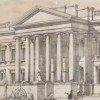
Jason R. Rudy, “On Literary Melbourne: Poetry in the Colony, ca. 1854”
Few in the mid-nineteenth century would have imagined the British colonies in Australia as spaces for poetic composition, and yet reproducing culture abroad was crucial to the British colonial project. This essay explores some of the challenges faced by poets in colonial Melbourne, a city at first more interested in gold digging than literary composition.
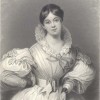
Angela Esterhammer, “1824: Improvisation, Speculation, and Identity-Construction”
Literature and cultural history of the year 1824 reflect the prominence of improvisation and speculation as ideologies and modes of action. Both these terms suggest hasty action that lacks a solid or profound basis, that responds to contingencies and constructs its own (pseudo-)reality. This article explores modalities of improvisation and speculation by focusing on the interrelated themes of ephemerality, appearance, and identity-construction in texts and performances of the year 1824, including influential works of poetry and fiction, the burgeoning periodical press, and new forms of theatrical entertainment.

Peter Melville Logan, “On Culture: Matthew Arnold’s Culture and Anarchy, 1869″
Matthew Arnold’s Culture and Anarchy spells out one of two major theories of culture to emerge around 1870. His theory defines culture in idealist terms, as something to strive for, and in this it helped to shape twentieth-century thinking about the value of the humanities in higher education. Arnold’s ideas were closely related to those of Edward B. Tylor, who proposed the descriptive theory of culture adopted by the emerging discipline of anthropology at about the same time.
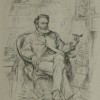
Jonathan Farina, “On David Masson’s British Novelists and their Styles (1859) and the Establishment of Novels as an Object of Academic Study”
This essay shows how the publication of David Masson’s British Novelists and their Styles, the first monograph on fiction by a professor of English literature, institutionalized the study of fiction by representing novels as material evidence of otherwise ephemeral, ideological, unconscious, or otherwise invisible “currents” of history. Other Victorian theories of fiction were more manifestly influential in establishing the formalist modes of fictional analysis and narratology that have since dominated the discipline, but Masson’s work nevertheless exhibits investments in feminism, cosmopolitanism, liberalism, statistics, ideology, and history that uncannily anticipate the interests of modern scholars of Victorian fiction. However generically unfamiliar it might look, then, Masson’s work marks the emergence of the cultural interests, disciplinary objectives, and other conditions of representation that underwrite academic criticism as we now know it.

Erik Simpson, “On Corinne, Or Italy”
Germaine de Staël’s Corinne, Or Italy was published in French in 1807 and was quickly translated into English. It became a touchstone for nineteenth-century conceptions of women’s creativity and the life of the woman writer, as well as an important formulation of analogies between models of artistic creation and political systems. The novel’s portrayal of Italian improvisers also helped produce the modern usage of “improvisation” and related terms in English.

Herbert F. Tucker, “In the Event of a Second Reform”
Between the 1867 passage of the Second Reform Bill and that of the Forster Education Bill in 1870, Britain undertook its modern metamorphosis into an effectively secular and democratic state, in a legislative process concurrently abetted and assessed by contemporary productions in literature. Thick description of this process illustrates by example this entry’s framing questions about the nature and the scale of an “event.”
